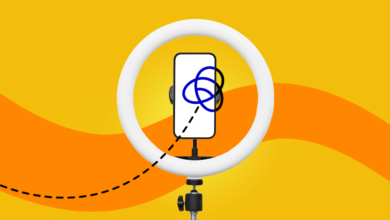How To Create A Thriving Onboarding Mentorship Buddy Program Premium Scholorships Info

What Makes A Successful Onboarding Mentorship Buddy Program?
Starting a new job can be a total whirlwind with all those new faces, systems, and rules. But, with a strong onboarding mentorship buddy program in place, things can get a whole lot smoother. Onboarding isn’t just about paperwork; it’s about helping newbies grasp their roles, how they fit into the company’s big picture, and the vibe of their new workplace. It’s like a confidence boost and a warm welcome all in one.
So, what’s one of the best ways to ensure that new employees feel supported and integrated? Enter the mentorship buddy program. This program connects new hires with seasoned colleagues who help them navigate their first months at work. These mentors, or buddies, do more than just show them where the coffee machine is or how to operate the printer (although that’s important, too). They offer valuable insights into company culture, unspoken rules, and effective strategies that can truly enhance a new hire’s journey.
Mentorship buddy programs are key to onboarding success. They save new employees from feeling lost and alone and help them get up to speed in no time. On top of that, they’re all about building relationships that are important for climbing the career ladder. Mentors get to share knowledge and feedback, which opens doors for networking. However, they also equally benefit from that. It’s a chance to level up their leadership skills and see things from a whole new perspective.
Below, we’ll dive deeper into what’s the secret behind a successful onboarding mentorship buddy program so you can start implementing it in your company or enhance your existing one.
7 Tips To Impress New Hires With An Onboarding Mentorship Buddy Program
1. Define Goals
Setting clear objectives is key to a successful mentorship program. When you have clear goals, everyone knows where they’re headed and why they’re doing it. Make sure these goals aren’t generic, though; they have to align with your company’s values. For example, if you’re all about innovation, make sure your goals encourage creativity and out-of-the-box thinking. And how do you know if it’s actually working? Well, you have to measure the outcomes. Improved performance, happier employees, and quicker onboarding—these are the metrics that matter. So, as long as you keep track of everything and make adjustments, you’re sure to create a successful program.
2. Select The Right Mentors
Finding the perfect mentors shouldn’t be too hard if you really know your workforce. You need experienced professionals who know the ins and outs of the company but also have good communication skills. And let’s not forget they should actually enjoy helping others. Once you’ve got the dream team, make sure to give them the proper training, as well as some incentives to keep them motivated. The happier you keep your mentors, the more efficient they’ll be, leading to a more effective program for your new employees.
3. Plan The Program
If you want your mentorship program to be a success, you have to structure it properly. First things first—let’s talk about duration. Your mentorship should ideally last three to six months, giving new hires enough time to settle in and form a meaningful bond with their mentor. And how often should they meet? Weekly or biweekly meetings are the norm. This keeps the connection strong without overwhelming anyone. During these meetings, try different approaches. Start with some icebreakers and then move on to important topics like company systems, team dynamics, and personal goals. This balanced structure ensures mentees get comprehensive support throughout their onboarding journey.
4. Foster Open Communication
Any onboarding mentorship buddy program is bound to fail without proper communication. Therefore, you have to create a safe space for mentors and mentees to express themselves. First, mentors should be approachable and actually listen to what their mentees have to say. That’s how you build trust and make newcomers feel like they matter. Then, don’t forget about feedback loops—schedule regular check-ins so mentors can chat with their mentees about what’s going well and what needs improvement. However, if conflicts occur, they need to know how to handle them. So, encourage everyone to freely speak their minds and find solutions together.
5. Encourage Social Integration
Social integration is the key to unlocking the full potential of your new recruits. Think fun icebreakers, group challenges, or even casual outings like a team lunch or a game night. These activities entertain them while also helping them form bonds outside of work tasks. And don’t miss out on networking, either—introduce new employees to different departments to expand their social circle. Lastly, teach them about company culture with stories, traditions, and unwritten rules. Their mentors should be experts at this, facilitating their acclimation to the company.
6. Monitor Progress
Keeping an eye on your mentorship program’s progress is like having a map for your journey. You need to have the right tools and methods to make sure you’re headed in the right direction. Start by using basic tracking tools like shared spreadsheets or dedicated software to keep a record of meeting dates, discussion topics, and milestones. As far as metrics are concerned, check out mentee satisfaction, meeting frequency, and goal achievement rates. Are new hires feeling satisfied? Are they hitting their targets? These indicators will give you a peek into how well the program is performing. But don’t just leave it at that—always strive for improvement. Regularly gather feedback from mentors and mentees and use it to refine the program.
7. Celebrate Successes
Recognizing achievements is a total game-changer for any mentorship program. Mentors and mentees should occasionally get a pat on the back for their hard work, whether it’s through awards, shout-outs in meetings, or a simple thank-you note. This not only boosts morale but also sets the standard for others. Sharing success stories is another powerful tool. When people hear about a mentee who aced it thanks to their mentor, it motivates others. Over time, celebrating achievements leads to stronger employee engagement, higher retention rates, and a more connected workforce.
Conclusion
If you want to make sure your new hires feel like they belong and are confident in their new workplace, start planning your onboarding mentorship buddy program. It’s not just about teaching new hires the ropes; it’s about making them feel at home. So, follow these 7 secrets and watch your recruits thrive. Investing in an improved mentorship program is the way to go.




